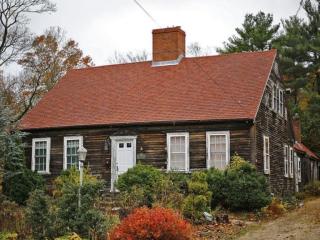Demolition Delay Ordinance

The Town Demolition Delay Ordinance provides a “window of opportunity” to preserve historically significant buildings by encouraging owners to consider alternatives to demolition.
Identifying Historically Significant Buildings
The Demolition Delay Ordinance was adopted by Town-meeting vote in 1997. It defines a historically significant building as any building or portion thereof which:
- In whole or in part was built 100 or more years prior to the date of the permit application, or is of unknown age.
- Is importantly associated with one or more historic persons or events or with the architectural, cultural, political, economic, or social history of the Town of Weymouth, the Commonwealth of Massachusetts, or the United States of America.
- Is historically or architecturally important by reason of period, style, method of building construction, or association with a particular architect, either by itself or in the context of a group of buildings or structures.
The Historical Commission is responsible for compiling a list of all known historically significant buildings in the community. These properties are automatically subject to the protections of the Demolition Delay Ordinance.
Find the Town's list of historically significant buildings here.
How the Demolition Delay Process Works
The typical steps of the demolition delay process are outlined below:
- The Inspector of Buildings notifies the Historical Commission of any application to demolish a historically significant building.
- The Historical Commission holds a public hearing to determine whether demolition of the building would be detrimental to the historical or architectural heritage or resources of the Town. If yes, the Commission notifies the applicant and the Inspector of Buildings that the property is "preferably preserved," and no permit may be issued for six months.
- The Historical Commission and/or the Department of Planning and Community Development investigates and considers alternatives to demolition. There are many success stories in Massachusetts of municipalities collaborating with property owners to either preserve, rehabilitate, and/or restore historically significant buildings or locate a purchaser who is willing to do so.
- Once the delay period expires, a demolition permit may be issued, and the applicant may proceed with demolition.

